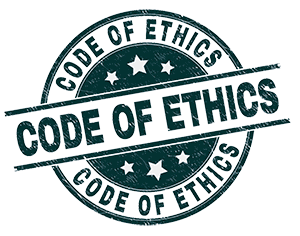Engineering Ethics: Professional Ethics For Engineers
You may be surprised by some of the most common ethics violations prosecuted by state engineering licensing boards.

Credit: 1 PDH
Price: $0.00
This webinar is currently not scheduled.

Professional Ethics for Engineers
Prior to 1900, professional societies generally subscribed to the belief that ethics was a matter of an engineer’s personal responsibility and not appropriate for a written code. That changed with the development of the first written codes of conduct for engineers in the early 1900s. These early codes emphasized the importance of an engineer’s loyalty to his or her employer. It wasn’t until the middle of the 20th century that engineering codes of ethics began addressing the engineer’s obligation to the public.
On October 28, 1946, the Board of Directors of the National Society of Professional Engineers (NSPE) adopted a “Canon of Ethics for Engineers” that was prepared by the Engineers’ Council for Professional Development (ECPD), which is now the Accreditation Board for Engineering and Technology (ABET). The ECPD/ABET model, which has evolved over the years, is the basis for the codes of conduct enacted as law by the state engineering boards.
This one-hour, discussion-based webinar investigates the most common ethics violations prosecuted by state engineering licensing boards and provides guidance on how to ensure that you don’t end up on the wrong side of a board disciplinary hearing. Additionally, we will discuss conflicts of interest and how these conflicts can create serious problems for engineers. Through case studies, students engage in real-life scenarios where engineers have faced ethical dilemmas in professional practice.
Led by a seasoned engineering professional, this webinar will help you meet many of the ethical challenges facing today’s engineers.
What you’ll learn in just one hour:
Benefits of Noon Pi webinars:
- You don’t have to leave your office. The entire training session is conducted from the convenience of your desk or meeting room.
- No fancy technology required. A computer or smart phone with a good Internet connection is all the equipment you need. Just log in and start learning.
- No wasted time. Our compact, one–hour sessions fit into the busiest of schedules. In no time, you’re back on the job using the wealth of relevant information you gained.
- Earn PDH credit. Webinars earn PDH credit for engineers in all states, unless noted otherwise in the literature for a specific webinar. For more details, check your state requirements.
- You have nothing to lose. Noon Pi webinars are offered to engineers free of charge!
More info:
For more webinar information, click on the following topics:



